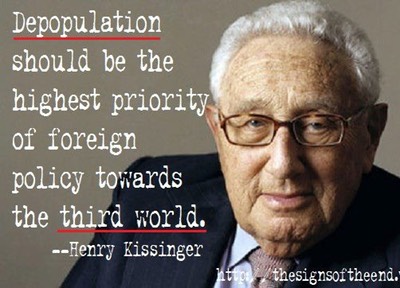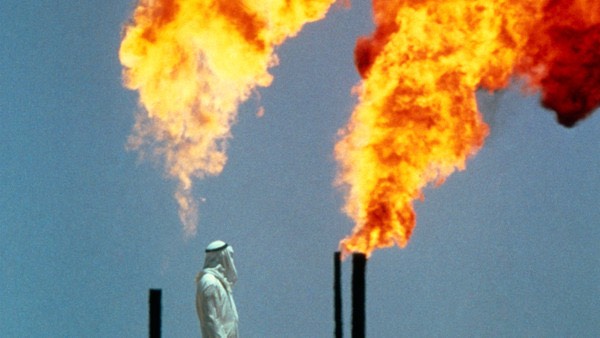Saudi Claims Oil Price Strategy Success
Saudi Arabia says its strategy of squeezing high-cost rivals such as US shale producers is succeeding, as the world’s largest crude exporter seeks to reassert itself as the dominant force in the global oil market.
The kingdom’s production rose to a record high of 10.3m barrels a day in April and there is no sign that it plans to reverse its policy at next month’s meeting of Opec, the producers’ cartel, in Vienna.
“There is no doubt about it, the price fall of the last several months has deterred investors away from expensive oil including US shale, deep offshore and heavy oils,” a Saudi official told the Financial Times in Riyadh, giving a rare insight into the kingdom’s thinking on oil strategy.
The International Energy Agency, the world’s leading energy forecaster, on Wednesday released data backing up the Saudi position. The agency said that with the number of rigs running in the US plunging by 60 per cent in response to lower oil prices, US shale oil production had “buckled” in April, “bringing a multiyear winning streak to an apparent close”.
But the IEA also cautioned that it would be “premature” to suggest that Opec had “won the battle for market share”. It said global crude supply was growing, even from high-cost areas such as Brazil, as well as from other Opec member states such as Iran and Iraq.
However, the Saudi official said he expected the kingdom to maintain its dominance of global energy, despite the growth of alternatives to fossil fuels and competition from rival oil producers within Opec and beyond. “Saudi Arabia wants to extend the age of oil,” he said. “We want oil to continue to be used as a major source of energy and we want to be the major producer of that energy.”
The official was speaking nearly six months after Opec, which is led by Saudi Arabia, took its landmark decision to keep output steady in the face of rising supply from rivals, rather than play its traditional role of cutting production to support prices.
The decision triggered a fresh fall in the oil price, throwing the budgets of the poorest exporter countries into disarray and forcing international energy companies to slash spending, drilling and jobs.
Saudi officials later explained that the policy was designed to put pressure on producers that require a higher oil price to be economic such as US shale drillers and companies operating in Brazil’s offshore fields. These they believed would be the first to collapse in a survival of the fittest as prices plunged.
Expectations are already rising that the market could soon start to tighten by midyear. The IEA said on Wednesday that was one of the reasons for the recent rally in the oil price: having crashed from $115 a barrel last June to almost $45 in January, Brent, the international crude benchmark, is now back up at around $68.
The Saudi official said the price of oil had now “reached a bottom” and it “doesn’t look like it is going back”.
But experts say it is too soon to say whether Saudi Arabia is succeeding in increasing its market share. Data from 2011-14 show that while its share of imports to India and Japan has grown, in China it has lost out to Opec peers Iran and Iraq.
US shale producers would also disagree that Saudi Arabia has succeeded in squeezing them. The US oil industry has slowed down: but EOG Resources, the country’s largest shale oil producer, has forecast a return to “double-digit” production growth if the US benchmark, West Texas Intermediate, rises to $65 per barrel or higher. It is currently trading at around $61.
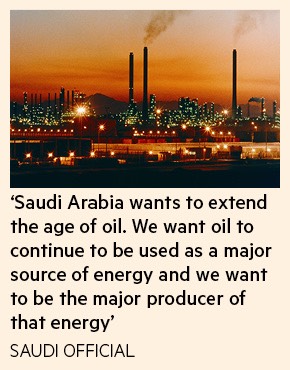
The Saudi official admitted “increased efficiencies” were likely as US shale and other producers adjusted to lower prices. He also said the impact of the price rebound was still “unknown” and “there is not yet any clarity on the US supply curve and drivers”.
The comments from Riyadh come with the Saudi oil sector facing deep uncertainty in the wake of sweeping changes to the governance of the oil ministry and the state energy company Saudi Aramco by King Salman, who ascended to the throne in January.
Some oil sector observers in Saudi Arabia say that King Salman’s accession increased pressure on veteran oil minister Ali Al Naimi and the advocates of his oil production strategy to reaffirm their position.
http://www.ft.com/cms/s/2/69350a3e-f970-11e4-be7b-00144feab7de.html
Visitors to LM:GNC
Leuren Moret: Global Nuclear Coverup
- ❁ Currents
- ⚛ Radiation Omnicide 👥
- 🎥 UC, Davis, Katehi, Illuminati ✠
- 🌎✟☦ One World Religion 🎭
- ♞ Atlanticists v. Putin et al ⚪️
- ✈️ 3 NWO False Flags Connected ➷
- 🔪Ukrainian ✠ Wikileaks 👀 Interview 🎥
- 🚫 Out of Eurasia 🚫
- 💀 Jade Helm, International Implications, NWO Rollouts ⏰
- 🌿 Essential Oils, Nutrition, Frequencies & Health 🌺
- 🎯 R.F.D.E. | H.A.A.R.P. | N.L.P. ⚡️
- ⚛ Leuren Moret: Hiroshima, Nagasaki, Fukushima ⚛
- ❦ Moret & Battis: Jade Helm ❦
- 🌎 New World Order America 🇺🇸
- ⨳ Geopolitics Ukraine | E.U. Judo 🌍
- 👥 Template: Jade Helm
- ✠ America’s Domestic Pacification ✠
- ♨️ Chernobyl, Zaporozhye, Blackmail ⚛
- 💉 REBRANDING DISASTER🔪
- 👤 Eurasian Enigma Arises
- 🔴 Donetsk Nuclear Explosion ⚫️
- 🌍 21st Century Silk Road 🌏
- 🌍 Africa ☗
- ♞ Balkans, The Nameless Triangle
- 🌏 China 🌝
- 🌍 Eurasia 🔴
- 💣 Israel: Out of Erupt!
- ✠ Jesuits/Templar’s Origins & Aims
- 👺 SOROS ✠ NWO 📚 Hacked ✍
- ➴ Pyatt’s ✠ SOROS ♞ Breakfast 🍳
- Breedlove, GOOD RIDDANCE
- 🎱 Obama’s $3 Billion Eurocon 💸
- 🌍 A Psychopath’s Psychopath ✠
- 🔫 Global Hit Squad 💣
- 💀 Neo-Capitalist’s Slave Trade 💰
- 🇺🇸 Bio: Undermine Control
- ↷ Fine Evening For A Minuet ↶
- ✠ Slavery, Then & Now
- 💣 JCS Operation Northwoods
- ✠ The Three Secret Meetings
- Korea Yeonhee (연희) Nuclear Kabuki Theatre
- 🌍 Middle East 💣
- 💣 ISIL: Battered, Retreating 💀
- 🔥 Turkish Coup Attempt 💣
- ⚑ Muslim Brotherhood and ISIS ⚫️
- 🔫💰💉Daesh Terrorist Multi-Tool🔪💣💊
- 🚧 US and Turkey, NWO the Kurds 💸
- ✠ Hitler Bragged on Jesuits ✠
- 🍞 Their Daily Bread & Rubble 💣
- 🔪“Erdogan is Strengthening ISIS”💣
- 🇫🇷 Russia Reveals ISIS’ Money 💰💰
- "Raqqa's Rockefellers” ISIS Full Frontal
- ☞ Smashing Turkey’s Game❌
- 🌍 Juncker | E.U. | Direction ⤣
- 🔪 GLADIO Wolf Kills Russian Pilot ✈︎
- ✈︎ Washington’s SU-24 🎯
- 🌐 Turkey, NATO, War Crime? 🔎
- ➷ 449-Down, ISIL to Go 💣
- 🌎 North America 🔥✠
- 🇷🇺 Russia 🇷🇺
- 🇷🇺 PUTIN OVERHAULS KREMLIN 🏰
- ☛ Who Created ISIS ☚
- 🍳 Food Supply Compromised 🎱
- 🌍 Putin re Ceasefire Syria 🌐
- 👤 Cold War Re-Run 👀
- 🌐 Minsk 101 | Theatre of the Absurd 🌍
- 🌐 Geopolitical Original Sin 🌍
- ♘ Russian Troops | Turkish Border ♘
- 📚 Educating Charlie Rose 🔑
- 🌍 Lavrov's Munich Speech
- 🎱 US Embassy Media Fail 🎭
- ✠ ♛🃏 Putin’s Jar Of Spiders
- 🎱 MOSSAD’S ON THE DOORSTEP 💣
- 📄 This Document is Dynamite 📄
- ♔ The Golden Trap
- ❁ Russian Fusion-Fission
- ❁ Putin’s 7-Point Plan
- ❁ Russian Position Speech
- ✈︎ Ukraine, MH-17, Jesuits Flagged! BRICS Undermined?
- ⏰ Ukraine? 🔥 Bail Out! ✈️
- 💦👤 Psychotropic Zombification ☔️
- 💣 Odessa Trade Union Murders 🔥
- 🃏 Nothing Personal, Just Business 💰
- 💉 BioWeapons for Depopulation 💀
- ⚛ Nuclear Coverup Ukraine | Mines of Zholti Vody 💀
- 🔥 Unsustainable Ukraine 👥
- ☗ ASHES TO ASHES 💀
- 🔪Ukrainian Wikileaks 👀
- ☞ Dispatches From the Front 🔫
- 💣 The Ukrainian Failed State 🌍
- 🔑 Our Decisions Define Us🔑
- ✠ Child Abuse 💀
- 💣 Mozgovoi’s Murder 🔪
- 🎱 Yatsenyuk's Russian Threat 🔮
- ||| Prison Ukraine |||
- ✍ CyberBerkut Reports 👥
- ♨️ Crazy Arseniy’s -USED- Ukraine Fire Sale! ♨️
- ✝ AZOV CRUCIFIXION ✝
- 👤 Eyewitness Debaltsevo Cauldron 💀
- ✍ Historic Slaviansk Doctor Interviewed
- 💀 The Tragedy of Uglegorsk
- ♟ Jan. 2015 Minsk Fail 🃏
- ➷ Tochka Found, Debaltsevo Locked
- 🌍 World Facing Second Chernobyl
- ✈︎ MH-17 AND THE Jesuit Minuet
- ✈︎ MH-17, Jesuits Flagged!, Video
- 💀 Death’s Drummers
- 👤 DPR! Novorossiya Calling
- 💀 Ukraine’s Chernobyl Armor
- 🎱 Gas to Ukraine Blocked
- ❁ Global Nuclear Theatre: Donbass
- ✠ GHOSTS of the 51st BRIGADE
- ❁ Novorossiya: Strelkov Briefing
- 👤 Open Letter to President Putin
- ✈︎ MH-17 Dutch Interim Report
- 💣 Surrendering UA Murdered by Punatives
- ♟ Mutiny of the Euro-Integrators ♟
- ➹ View from Ukraine Operating Room
- ❁ Ukraine’s Violent Escalation
- ❁ Ukrainian Soldier’s Cry for Help
- ⧱ Occupied Ukraine ⧱
- ❁ US State's Nuland Directs Ukrainian Coup
- 📯 Ukraine Deputies Knew Before Maidan
- ❁ Health In 2015
- 💉 Vaccines 💀
- 🎥 Geopolitics, Jesuits & History
- 🎥 Rebranded ✠ The Jesuits ✠
- ⚛ Zaporhyze Nuclear Events & Geopolitics
- ❁ Fukushima Polar Vortex Radiation ❁
- 💀 Embrace, Enfold, Extinguish
- ✈︎ Fear of Flying . . . (1of4)
- ❁ Fukushima: Impact of Fallout On Oceans (Pt.1)
- ❁ Fukushima: Impact of Fallout On Oceans (Pt. 2)
- ❁ North America, Middle East and Fukushima
- ❁ DHS/Napolitano Berkeley Template
- ❁ Fukushima Radiation, Ecocide & Tesla Technology
- ✈︎ Flight 370 Downing
- ✈︎ MH370: The Follow-Up
- ❁ Domestic Radiation Issues
- ❁ Fukushima: Hawaii, Pacific Is. - Unsafe
- ⚛ Fukushima Reactors, Breakdown 1-6 ⚛
- 🌏 International Sites Featuring LM:GNC
- ❁ On To Mongolia 🎥
- 🎥 LKM On Fairdinkum Media 🎥
- ❁ Editorial Page
- ❁ Conversations 📬
- ❁ Waves
- ⚛ Radiation Around The Nation 🌎
- ⚛ Your Radiation #73/74, Sep 10 - 24, 2016 🌎
- ⚛ Your Radiation #71/72, Aug 27 - Sep 10, 2016 🌎
- ⚛ Your Radiation #69/70, July 30 - August 13, 2016 🌎
- ⚛ Your Radiation #67/8,--July 16-30, 2016 🌎
- ⚛ Your Radiation #65-6,--July 2-16, 2016 🌎
- ⚛ Your Radiation #64, July 2-9, 2016 🌎
- ⚛ Your Radiation #62-3, June 18 - July 2, 2016 🌎
- ⚛ Your Radiation #61, June 11-18, 2016 🌎
- ⚛ Your Radiation #60, June 4-11, 2016 🌎
- ⚛ Your Radiation #59, May 28 - June 4, 2016 🌎
- ⚛ Your Radiation #58, May 21-28, 2016 🌎
- ⚛ Your Radiation #57, May 14-21, 2016 🌎
- ⚛ Your Radiation #56, May 7-14, 2016 🌎
- ⚛ Your Radiation #55, Apr 30 - May 7, 2016 🌎
- ⚛ Your Radiation #54, Apr 23-30, 2016 🌎
- ⚛ Your Radiation #53, Apr 16-23, 2016 🌎
- ⚛ Your Radiation #52, Apr 9-16, 2016 🌎
- ⚛ Your Radiation #51, Apr 2-9, 2016 🌎
- ⚛ Your Radiation #47-50, Mar 5 - Apr 2, 2016 🌎
- ⚛ Your Radiation #46, Feb 27-Mar 5, 2016 🌎
- ⚛ Your Radiation #45, Feb 20-27, 2016 🌎
- ⚛ Your Radiation #44, Feb 13-20, 2016 🌎
- ⚛ Your Radiation #43, Feb 6-13, 2016 🌎
- ⚛ Your Radiation #42, Jan 30 - Feb 6, 2016 🌎
- ⚛ Your Radiation #41, Jan 23-30, 2016 🌎
- ⚛ Your Radiation #40, Jan 16-23, 2016 🌎
- ⚛ Your Radiation #39, Jan 9-16, 2016 🌎
- ⚛ Your Radiation #38, Jan 2-9, 2016 🌎
- ⚛ Your Radiation #37, Dec 26 - Jan 2, 2015|16 🌎
- ⚛ Your Radiation #36, Dec 19-26, 2015 🌎
- ⚛ Your Radiation #35, Dec 12-19, 2015 🌎
- ⚛ Your Radiation #34, Dec 5-12, 2015 🌎
- ⚛ Your Radiation #33, Nov 28 - Dec 5, 2015 🌎
- ⚛ Your Radiation #32, Nov 21-28, 2015 🌎
- ⚛ Your Radiation #31, Nov 14-21, 2015 🌎
- ⚛ Your Radiation #30, Nov 7-14, 2015 🌎
- ⚛ Your Radiation #29, Oct 31 - Nov 7, 2015 🌎
- ⚛ Your Radiation #28, Oct 24-31, 2015 🌎
- ⚛ Your Radiation #27, Oct 17-24, 2015 🌎
- ⚛ Your Radiation #26, Oct 10-17, 2015 🌎
- ⚛ Your Radiation #25, Oct 3-10, 2015 🌎
- ⚛ Your Radiation #24, Sep 26 - Oct 2, 2015 🌎
- ⚛ Your Radiation #23, Sep 19-26, 2015 🌎
- ⚛ Your Radiation #22, Sep 12-19, 2015 🌎
- ⚛ Your Radiation #21, Sep 5-12, 2015 🌎
- ⚛ Your Radiation #20, Aug 29 -Sep 5, 2015 🌎
- ⚛ Your Radiation #19, Aug 22-29, 2015 🌎
- ⚛ Your Radiation #18, Aug 15-22, 2015 🌎
- ⚛ Your Radiation #17, Aug 8-15, 2015 🌎
- ⚛ Your Radiation, August 1-8, 2015 🌎
- ⚛ Your Radiation, July 24-31, 2015 🌎
- ⚛ Your Radiation, June 26 - July 24, 2015 🌎
- ⚛ Your Radiation, June 19-26, 2015 🌎
- ⚛ Your Radiation, June 12-19, 2015 🌏
- ⚛ Your Radiation, June 5-12, 2015 🌎
- ⚛ Your Radiation, May 29 - June 5, 2015 🌎
- ⚛ Your Radiation, May 22-29, 2015 🌎
- ⚛ Your Radiation, May 15-22, 2015 🌎
- ⚛ Your Radiation, May 8-15, 2015 🌎
- ⚛ Your Radiation, May 2-8, 2015 🌎
- ⚛ Your Radiation, April 24 - May 1, 2015 🌎
- ⚛ Your Radiation, April 17-24, 2015 🌎
- ⚛ Your Radiation, April 9-16, 2015 🌎
- 🔥 Fire at Oak Ridge 💥
- 💥 NANOWEAPONRY 💥
- 🐄 Radioactive Cattle Teeth, Fukushima 🏭
- 📰 WikiLeaks 🔎 NSA and More 🔦
- ✨Nano ‘Hall of Mirrors’⚡️
- ⚛ 💀 ⚛ into the Hudson River 🌎
- 🚿 Flint, Metropolitan Eugenics 💀
- 🌍 Existential Threat? ☛NATO☚
- 💉 Gates, Poroshenko; Conspiracy, Government 🎯
- 💉 Gates-Poroshenko ZPG Ukraine 💀
- 💀 Paris Massacre Perpetrators 👤
- 🔪 Delgado, Mind Control ♟
- 🌎 MOST NUKED NATION ON EARTH 🌎
- 🎯 Radio Frequency Directed Energy 🎯
- ⚛ Please, Don’t Pick the Mutants 🌻
- ⨳👤⨳ Space-Based Weapons Ban
- √ Saudi OP Strategy Success
- ♨️ Gallery ♨️ Chernobyl Fire ♨️ 2015 ♨️
- 🌍 Monsanto Backdoors E.U.
- 🎉 Crimea’s 1st Anniversary Album 🎉
- 🌏 21st Century Eschalon
- 📰 International Headline Watch 🌏
- ✄ Prouty Place ✑ CUT THE BULL ✂︎
- 🌏 How To Wreck The Environment
- 🇯🇵 Plutonium Isotopes Off Japan
- 🌍 Depopulation Agenda: Europe 👤
- 🔪💉Cease Covert Depopulation Letter🔪💉
- ❁ Dutch Apologize for MH-17 Lies
- ❁ Pacific Dead from Fukushima
- ❁ Strange Fish Story
- ❁ Blood Composition of Monkeys Altered Near Fukushima
- ❁ Secret Army Bases
- ⚛ Fukushima Plutonium Effect ⚛
- ➷ RAND Demographic Military Power ➷
- ⚛ Depleted Uranium | DNA Damage ⚛
- ❁ Hidden Genocide: by Dr. Ernest Sternglass
- ❁ Space Preservation Act of 2001
- ❁ 1972 Rothschild Ball
- ❁ Unsafe Radwaste Disposal
- ♆ Fallout and Reproduction of Ocean Fish Populations
- ⚛ Radiation Around The Nation 🌎
- ❁ Lifestyle
- ❁ Archive
- ⚛ 61 Years of Omnicide ⚛
- 📻 Nanoparticle Toxicity with Leuren Moret ❦
- ❁ New Bombs and War Crimes in Fallujah
- ❁ Global Climate Change . . .
- ⚛ International Radiation Distribution ⚛
- 💀 Depleted Uranium’n’DNA 😱
- ❁ UC Regents Lose Nuke Pgm
- ❁ DU-Trojan Horse
- ❁ LM:GNC (Pt1)
- ❁ LM:GNC (Pt2)
- ❁ World Uranium Weapons Conference 2003
- ⚛ Radionuclide ReMobilization Abatement
- ❁ "America First" Transcription
- ❁ "Whale Archive" Transcription
- ⚛ ⚛ ⚛ Location, Leuren Moret: Global Nuclear Coverup ⚛ ⚛ ⚛
- ❁ Glossary
- ❁ Contact
# # #
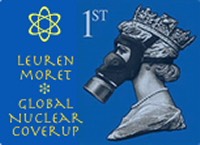




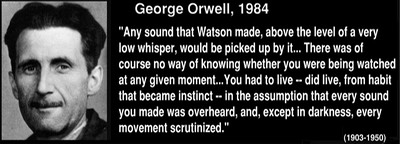
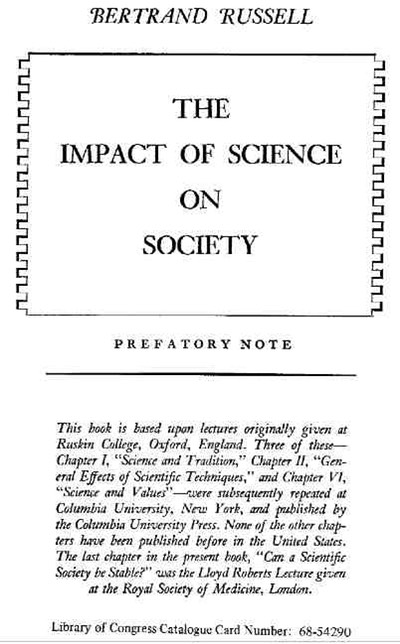

![20120724 - 7-24-2012 The More We Learn - quote from David Rockfeller -_thumb[2]](../_Media/20120724---7-24-2012-the_med_hr.jpeg)



